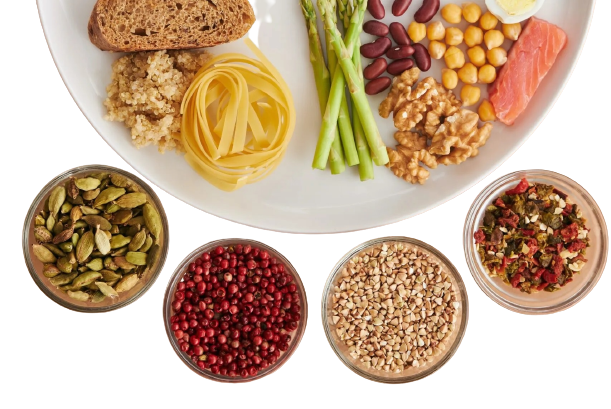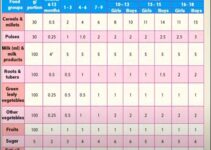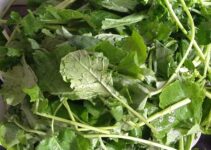Essential nutrients during pregnancy

7 diets during pregnancy
- Energy: During the first trimester, a pregnant woman requires about 1,800 calories for a woman with a sedentary lifestyle, about 2,000 calories for a moderately active one and about 2,200 for a busy woman. However, during the second and third trimesters, one should take an additional 340 and 450 calories per day, respectively.
- Carbohydrates: During pregnancy, one should take about 175 to 265 grams daily for proper baby growth. Carbohydrate sources are whole-grain bread and cereals, brown rice, root vegetables, legumes, and fruits.
- Protein: Protein helps to build muscle, tissues, enzymes, antibodies, and hormones both in the baby and the mother. Recommended Protein: 71 grams per day. Source: lean red meat, white-meat poultry, legumes, nuts, seeds, eggs, fish, low-fat milk and other dairy products.
- Fat: About 25 to 35 per cent of daily calories should be fat—sources: Avocados, salmon, sunflower or safflower oil.
- Fiber: 25 to 30 grams of dietary fibre should be taken daily. Sources: whole grains, fruits, vegetables, dried peas, beans, oats and barley.
- Fluid: Pregnant women should drink 2.3 litres of liquids daily.
- Vitamins and Minerals
Nutrients | Quantity |
Vitamin A | 770 mcg |
Vitamin B6 | 1.9 mg |
Vitamin B12 | 2.6 mcg |
Vitamin C | 85.0 mg |
Vitamin D | 5.0 mcg |
Vitamin E | 15.0 mg |
Calcium | 1,000.0 mg |
Folate | 600.0 mcg |
Iron | 27.0 mg |
Magnesium | 360.0 mg |
Phosphorus | 700.0 |
Riboflavin B2 | 1.4 mg |
Thiamine (B1) | 1.4 mg |
Zinc | 11.0 mg |
Niacin (B3)
| 18.0 mg |
Pregnancy essential nutrients
Though, in pregnancy, one should take plenty of fruits, green vegetables, lean protein, whole grains and healthy fats, some essential nutrients should be given prominence.
- Folic acid and folate: Good for the brain and spinal cord. About 400-600 micrograms are recommended every day of pregnancy. The good folic acid and folate sources are green vegetables, citrus fruits, peas and legumes.
- Calcium: Calcium is known for strengthening bones and teeth. One should need 1,000 milligrams of it daily; the best source is milk products, broccoli and kale.
- Vitamin D: Vitamin D promotes a baby’s bone strength and teeth development. 600 international units of it are required a day. The best source of it is salmon, fortified milk and orange juice.
- Protein: Protein is paramount for a baby’s overall growth during pregnancy. Seventy-one grams is recommended in a day. Good source of protein is lean meat, poultry, seafood and eggs.
- Iron: Iron prevents anaemia. The required dose of it is 27 milligrams a day. The best source of iron is poultry, fish, beans and vegetables.
Why a healthy diet is a must in pregnancy?
Pregnancy is a crucial stage for women when they face physical and mental health problems; if not cared for properly, it may affect both mother and child, so utmost heed should be taken during this time. Diet can play essential roles during pregnancy and for the unborn baby’s overall development and maintaining a healthy mother.
Healthy Diet & Food for Pregnancy
The following diet should be preferred during pregnancy and the lactation period
- Green leafy vegetables, beetroot, carrot, spinach, tomato should be preferred.
- Soups of spinach, carrot, beetroot and pomegranate juice may be given.
- Unpolished rice is good.
- In sweet, honey/ jaggery should be taken.
- Sprouts of different grams like green, Bengal, and alfa-alfa are highly beneficial.
- Fresh fruits like guava, pear, apple, sapota, orange, sweet orange, etc., may be given weightage.
- Juice of apple, carrot, and orange can maintain HB count during pregnancy.
Pregnancy diet chart
- Drink two glasses of water on an empty stomach, followed by simple Yogasana and exercise from 5:00 am to 6:00 am.
- Breakfast in the form of seasonal fruits and sprouts and juice from 7:00 am to 8:00 am.
- Lunch as roti, boiled vegetables, and salads should be taken by 11:00 am to 12:00 pm.
- Juice of seasonal fruits/herbal tea may be taken from 3:00 to 4:00 pm.
- Dinner must be taken in the form of Whole wheat roti, boiled vegetable curry with less oil and spices, salad/wheat dhaliya + green vegetables/ curd/green vegetable soups by 8-9 pm
Foods should avoid during pregnancy
- Tea
- Coffee
- Sugar
- Candy
- Maida products
- Garam masala
- Fried and Oily items
- Egg, Non-veg etc.
Note: The diet schedule may be changed as recommended by the physician.






